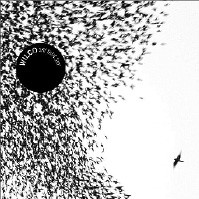Beyond the fact that it’s about two years late, the new Decemberists DVD, A Practical Handbook, chronicles perhaps the least interesting chapter in the band’s history. In 2003, the Portland, Oregon, group, renowned for its songs about chimney sweeps and homosexual soldiers, rented a local church, set up a makeshift studio with producer Chris Walla (of Death Cab for Cutie fame), and recorded its fourth full-length, Picaresque, for indie label Kill Rock Stars.
In A Practical Handbook, a documentary entitled Paris Before the War exposes no maniacal streak in frontman Colin Meloy or tensions between the band members, who seem honor-bound to help Meloy realize his strange tales. There are no career pressures, label meddlings, individual self-doubts, drug abuse, power struggles, budget concerns, rampant egotism, or even a natural disaster or personal tragedy to liven up the talking-head proceedings. Behind the Music it ain’t.
Meloy does briefly address his first band, Tarkio, and the frustrations of “countless tours of western Montana.” And he recounts his inspiration for “My Mother Was a Chinese Trapeze Artist,” a Tarkio-era song that essentially defined the Decemberists aesthetic: He wrote the exaggerated genealogy simply to make his girlfriend laugh. But that’s it for revelations. Paris Before the War delves no further into the geneses of Meloy’s oddball songs or questions his many fans’ rapt identification with his wayfaring characters. Rather, it disregards these issues in favor of dry historical fact.
Needless to say, the absence of conflict doesn’t make for an exciting viewing experience or a particularly insightful band history. If Paris Before the War is to be believed, the Decemberists are the most normal, well-adjusted indie band in America.
Except they’re no longer indie. That’s why the next chapter in the band’s career is much more deserving of documentation. On the strength of Picaresque, the Decemberists signed to Capitol Records and very quickly released their fifth album, The Crane Wife, in October 2006. This was their true moment of truth, precipitated by fans biting their nails, gnashing their teeth, and debating the possibility that their beloved band had sold out. The Crane Wife is perhaps the most important album the band will ever make, as its members had to prove they could occupy a much larger stage and sell their ambitious folk-pop to a popular audience.
And that’s just what the band did. The Crane Wife refines the narratives and pop melodies Meloy has been playing with for five years and wisely frames them in a Japanese folk tale, told in three parts at the beginning and end of the album. Aside from bubblegum noir of “The Perfect Crime No. 2,” which sounds out of place but gives the band an opportunity to stretch on stage, The Crane Wife is the Decemberists’ most concise and confident album, making them one of the very rare bands that do their best work on a major label, that get better when the crowds get bigger.
It helps that the Decemberists put on a lively live show. Meloy’s raconteurish lyrics reveal a natural showman who commands the spotlight easily. The lyrics also give the band members an opportunity to act out the stories, sometimes in the goofiest manner possible. In the live footage on A Practical Handbook, the Decemberists deliver feverish versions of Picaresque tracks such as “The Sporting Life” and especially the nine-minute shanty epic “The Mariner’s Revenge Song,” spurred to silly extremes by the hometown crowd’s rapt response. At a packed Crane Wife show in Philadelphia last fall, new drummer John Moen, guitarist Chris Funk, and touring violinist Lisa Molinaro wandered into the audience to playact The Charge of the Light Brigade as Meloy narrated from centerstage. Obviously they’re having no trouble translating what was once a small-scale act (Meloy says he’s played to empty rooms) to larger stages, losing little of their spiritedness in the process.
A stray comment by Meloy on A Practical Handbook reveals a great deal about his motivations: When Tarkio was folding, he says he realized that his “entire future as a career musician was in limbo.” That epiphany motivated him to move to Portland, then and now a hotbed of indie music, and presumably it drives every decision the band makes — not just the constant touring or their signing with Capitol but even the lengthy rebel-without-a-clue video for “O Valencia!” and the create-your-own-video fan contest that landed them on The Colbert Report.
And yet, despite his careerist streak, Meloy did not change his approach for the Decemberists’ major-label debut; in fact, the framing device and the 12-minute, multipart track “The Island” suggest he might have cherished being the square peg in that particular round hole. The qualities that have garnered the Decemberists such a loyal fanbase — their unapologetic smarts, their imaginative songs, their unmitigated, unironic glee in performing — would also seem to set distinct limits on how large that audience could grow. And yet, they’re also the qualities that prompt the band, especially Meloy, to pursue that large audience so doggedly.
In fact, the Decemberists’ most endearing trait may be their geeky disregard for the whole idea of selling out. Former and current indie acts are all over the radio dial and album charts this year, most without sacrificing or even diluting their eccentricities: Modest Mouse, the Shins, and Arcade Fire have all had challenging albums debut in the top spots on the Billboard Top 200 chart. Whether real or just wishful thinking, there is a sense that idiosyncratic bands like these can rub shoulders with American idols and standards-crooning baby boomers and have a significant impact on popular culture. The Decemberists will settle for a career for now, but they’ll set their sights much higher.
